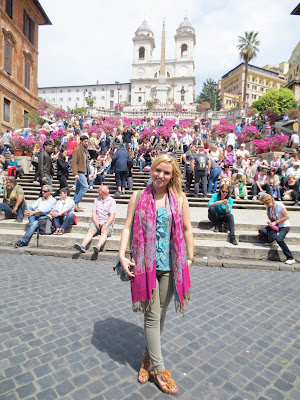 |
| Miss Kasia |
I have been able to teach many English (language) lessons and this has given me a great insight into what children find difficult, when learning English as a second language. The children often mix the present simple tense and the present continuous tense when speaking and writing. They also find it difficult to use definite and indefinite articles in the appropriate way. For example ‘I am playing the football in a school’ instead of ‘I play football in school’. I had never thought how complex the English language can be. Remembering which article to use is especially difficult for children whose mother tongue is Polish, as the Polish language doesn’t have definite and indefinite articles (a, an, the). Many of the language lessons that Miss Kasia prepares for the children focus on areas the children may find confusing, for example homophones. The children are literally like sponges; they readily absorb this information and effortlessly use this in their speech afterwards.
 |
| An example of a language homework |
I also have been able to teach some maths lessons. In contrast to the usual ‘Aww no’ that echoes in the classroom when a maths lesson is about to begin, the children in this class seem to really enjoy maths, and most of them are very talented at it. I think that this may be because mathematics is somewhat ‘international’ as Natanael West stated "Numbers constitute the only universal language" (Good Reads, 2013). The children can think in the language which is most comfortable for them and the symbols have the same meaning and value.
 |
| Music class in ISOP |
There is a definite sigh of relief when a mathematics lesson begins after a language lesson, and I can understand their frustrations. English is difficult! I can also understand their frustration as I am constantly confused and baffled by the Polish language. I really admire these children for their perseverance and determination to speak English, even when they are upset or angry about something. In the staff room I was discussing this with some of the teachers, and we agreed that we were also truly envious of these children as they now have have the abilitiy to speak and understand another language which will open so many doors for them in their future. As stated by Ludwig Wittgenstein, “The limits of my language are the limits of my world” (Language Land, 2013).
There is a famous quote ''In teaching others we teach ourselves'' and I have learnt a lot from teaching at this school. I think what I have learnt is important to remember in my future teaching career when I am teaching children in a second language.
 |
| Being on Erasmus has made me realise the importance of learning other languages to communicate and socialise |
Good Reads (2013) available at: ttp://www.goodreads.com/quotes/78894-numbers-constitute-the-only-universal-language accessed on 25/05/13
ISOP (2013) available at http://isop.pl/en/mission-statement/ accessed on 24/05/2013




















